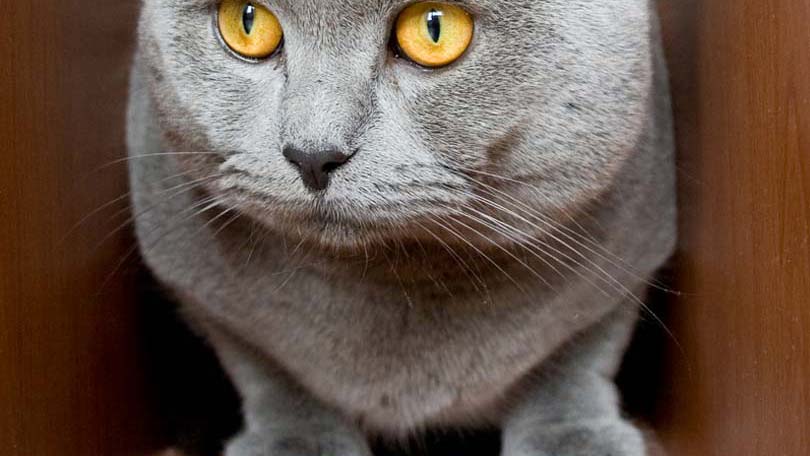
Most of the time, weight loss in your cat is no problem. Many of us are guilty of having an overweight cat, and some weight loss can be a good thing for their health. But significant, unexpected weight loss can be an important sign of a serious underlying health problem, and should be treated accordingly.
Cats can loose weight for a variety of reasons, some more severe than others. Diet changes, moving homes or any significant lifestyle changes can cause your cat to loose weight. However, any significant weight loss, or weight loss that continues to progress after a few weeks of adjustment to new changes in the home, should be checked out by your veterinarian.
Signs of weight loss may extend further than just reduction of body mass. Loss of body condition, muscle mass or poor hair coat may also be present. In addition, your cat may experience diarrhea, vomiting, increased thirst, increased urination, or a reluctance to eat. However, appetite should not necessarily be taken as a sign of good health- many cats with serious underlying causes of weight loss may still eat normally, or even increase their appetite, despite continuing to loose weight.
Weight loss in cats is not a disease- it is a sign of an underlying problem. Prompt veterinary care if you suspect a problem will help to ensure that the causes are diagnosed and addressed properly.
The causes of weight loss are extremely varied, but some of the most commonly seen culprits include:
Kidney Disease & Failure – one of the leading causes of death in cats, kidney failure is common in older cats, and although it usually occurs over a long period of time, weight loss in your cat may be one of the first signs you see. The kidneys are responsible for filtering the waste products from your cats blood and expelling them via the urine. As kidney function decreases, the waste products remain in your cat, causing a variety of symptoms including decreased appetite, weight loss, depression, increased thirst and urination.
Diabetes Mellitus is a disease rapidly increasing in prevalence. Insulin is a hormone produced by the pancreas that allows glucose to enter the cells of the body, providing energy. Diabetic cats may not produce enough insulin, or may not respond properly to insulin, decreasing the amount of glucose provided to the cells of the body. The body is therefore starved of energy, despite an often-ravenous appetite on the part of the cat. In addition, increased thirst and urination is a common sign of diabetes, as the kidneys try to void the body of the excess glucose.
Feline Leukemia Virus or FeLV is caused by a retrovirus that attacks the immune system of affected cats, and causes an array of secondary diseases including respiratory infections, weigh loss, lethargy, anemia, cancer and death. FeLV is extremely contagious, and can be transmitted by saliva and nasal discharge, as well as from an infected mother cat to her kittens. In addition to weight loss and poor appetite, affected cats may suffer from lethargy, diarrhea and other infections caused by a weakened immune system.
Hyperthyroidism is a common disease in older cats, caused by over-activity of the thyroid gland, which produces the thyroid hormones T4 and T3. The thyroid gland normally produces the thyroid hormones to control metabolism, but when production of the hormone increases, it can wreak havoc on the feline body. Symptoms of hyperthyroidism include weight loss despite an increased appetite, increased thirst and urination, vomiting, diarrhea, rapid heartbeat, increased blood pressure, and behavior changes.
There are many other potential causes of weight loss in cats. Because of this, your veterinarian is the most important person to help determine why your cat is loosing weight. One of the reasons your veterinarian is so diligent about recording your pets body weight during every visit is so that if you suspect weight loss, the former weights can be reviewed. Your vet will perform a comprehensive physical exam and question you as to any changes in their behavior or habits. Depending on your cats history and degree of weight loss, your vet may recommend some or all of the following tests:
Complete Blood Count and Chemistries – this basic bloodwork accesses the comprehensive well being of your cat. Blood chemistries look at a variety of body systems, and will give your vet a reading as to the basic health of your cats major organs such as the kidneys and liver. The CBC evaluates the components of your cats blood, including red blood cells, white blood cells, and platelets. The CBC can help to diagnose problems such as infections, anemia, and other blood-related issues. A thyroid level may be checked as well, to check the function of the thyroid gland.
Urinalysis is a comprehensive test that is valuable in determining problems such as diabetes, urinary tract infections and kidney disease.Fecal Examination-Due to the lifestyle of many cats, they are vulnerable to a variety of intestinal parasites, such as Giardia, tapeworms, whipworms and coccidian, all of which can contribute to weight loss. A fecal examination may be recommended to test for a variety of internal parasites.
Chest and Abdominal X-rays may be suggested to further evaluate your cats well being and potential underlying causes of weight loss.
Treatment of weight loss in cats is completely dependent on the underlying cause. Although many of the potential causes are serious, prompt treatment by your veterinarian will help to ensure your cats best chance of returning to good health.
